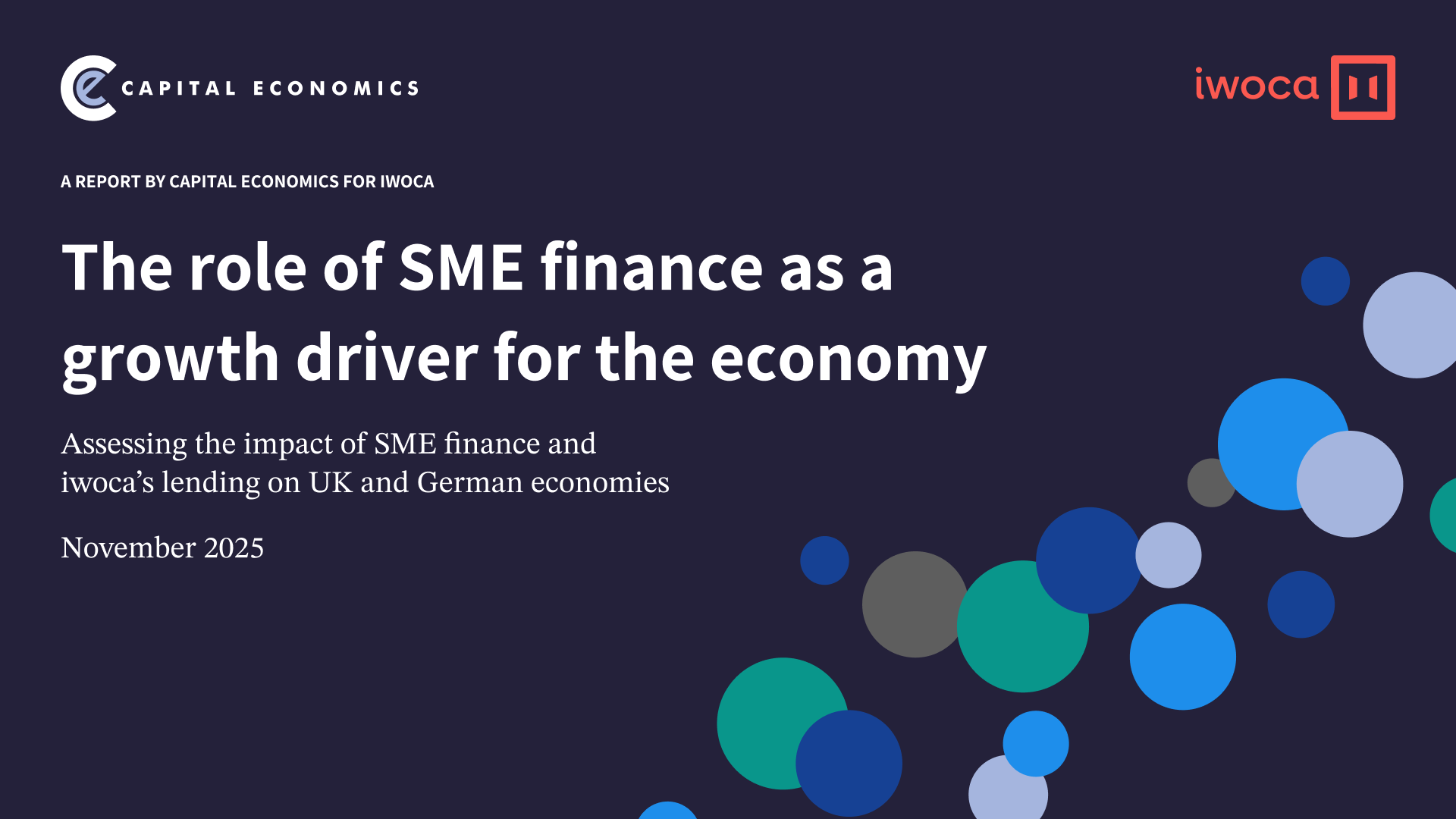iwoca reveals plan to fix Government's failing Bank Referral Scheme
5
min read
iwoca reveals plan to fix Government's failing Bank Referral Scheme






Dear Chancellor,
As one of the UK’s leading fintechs, we appreciate that a key input for our success has been the supportive policy environment unique to the UK. Because of the support we have received from the government through initiatives such as Open Banking, we – alongside other fintechs – are able to lead the way, ensuring the UK continues to be recognised as the global centre of financial innovation.
However, I am writing to you today because one of the cornerstone initiatives designed to help make finance more available to small businesses is at risk of failure. Launched in 2016, the Bank Referral Scheme (BRS) has failed to deliver any meaningful impact. Public figures show that a mere 902 loans were completed through the Scheme, of which iwoca financed 55 percent. We remain a major stakeholder in this process, understand in detail how it works and want it to succeed.
Britain’s small businesses continue to be chronically underfunded.Availability of finance to small businesses, measured by quarterly business loan and overdraft approvals, dropped by 46 percent since 2012, despite the number of registered businesses growing, and corporate and consumer lending reaching record highs.
We founded iwoca to solve this problem – since launching in 2012, we have approved 35,000 small businesses for finance, nearly half of those in 2018 alone. By count of new approvals we’re now among the top 5 small business lenders in our segment, including banks, and we have funded more than half of all loans facilitated through the BRS. Our rapid growth illustrates the scale of unmet demand for finance by small businesses which we estimate to be around £10 billion.
The BRS scheme remains one of the government’s potentially most transformational initiatives when it comes to making finance available to businesses. However, as with many ambitious targets, it does not come without complexity and more needs to be done to overcome them. We strongly believe this problem can be solved if banks, fintechs and policymakers join forces.
As a first step, I would like to ask for your support in setting up a Task Force that brings industry leaders and policymakers together to meet quarterly to review the BRS’ effectiveness and recommend solutions to unlock its full potential.
A large proportion of the £10bn in unmet lending demand could be unlocked if changes were made to the BRS.
In 2018, 10 percent of SMEs were planning to apply for finance, yet only 4 percent actually did. In other words, 6 percent, or more than 300,000 small businesses, were somehow discouraged to submit a complete application. This is particularly true for smaller, less established micro businesses who are less confident that they will be approved by banks: 55 percent compared to 80 percent for larger companies. As a consequence, those businesses that would benefit most from the scheme, never entered into its funnel. Based on the average funding amount of approx £21,000 for BRS loans in 2018, this alone represents an unmet demand of £6 billion.
To make BRS a success we need to increase its reach far beyond formally declined businesses and make improvements to the process to increase take up:
1. The BRS needs to dangle a few carrots at the banks
Why would a bank incur costs to capture the latent demand for finance from small businesses that fall outside their eligibility criteria? They wouldn’t. Introducing a referral fee to – at least – cover their costs might do the trick. This would transform their thinking about how to serve small business customers best and dramatically increase the volume of referrals.
2. HMRC should use the BRS technology to help smooth the payment of taxes by small businesses
No small business loves to pay taxes, but paying in instalments would soften the blow. Tax payments put pressure on cash-flow and often trigger a need for finance. Enabling small businesses to pay corporation tax in instalments, by seeking credit seamlessly through the BRS would resolve a pain point for them, increase the amount of taxes received by HMRC and reduce related administration cost.
3. Make the referral process seamless by leveraging “OpenBanking” technology
Following a referral, small businesses are required to endure further form-filling and to provide supporting documentation such as bank statements to alternative lenders causing unnecessary discouragement. BRS should leverage the OpenBanking technology to reduce such friction.
4. Boost its awareness among small businesses who were declined when applying for credit
Only 2 percent of businesses who were declined were made aware of the scheme. Better training of bank staff in branch and in call centres is required.
The government has a huge opportunity to turn the BRS into the success it deserves to be, for the benefit of small businesses across the country, and thereby creating much needed economic growth. By taking a leadership role and bringing together relevant industry leaders HMT could make headway towards solving this structural challenge. As the biggest supplier for funding through this scheme, we are committed to supporting you in this effort. I would be delighted to meet you, or your ministers, to talk about our proposals at your earliest convenience.
Yours sincerely,
Christoph Rieche, iwoca CEO and co-founder


How to use payroll loans for small businesses

Business Loans comparison: High Street Banks vs. Alternative Lenders
Comparing the pros and cons of getting a business loan from traditional lenders and alternative finance providers, including how they differ in application processes, speed of funding, rates and flexibility.

Working capital ratio
Discussing the importance of calculating your company’s working capital ratio, what it represents and how to improve the ratio.






